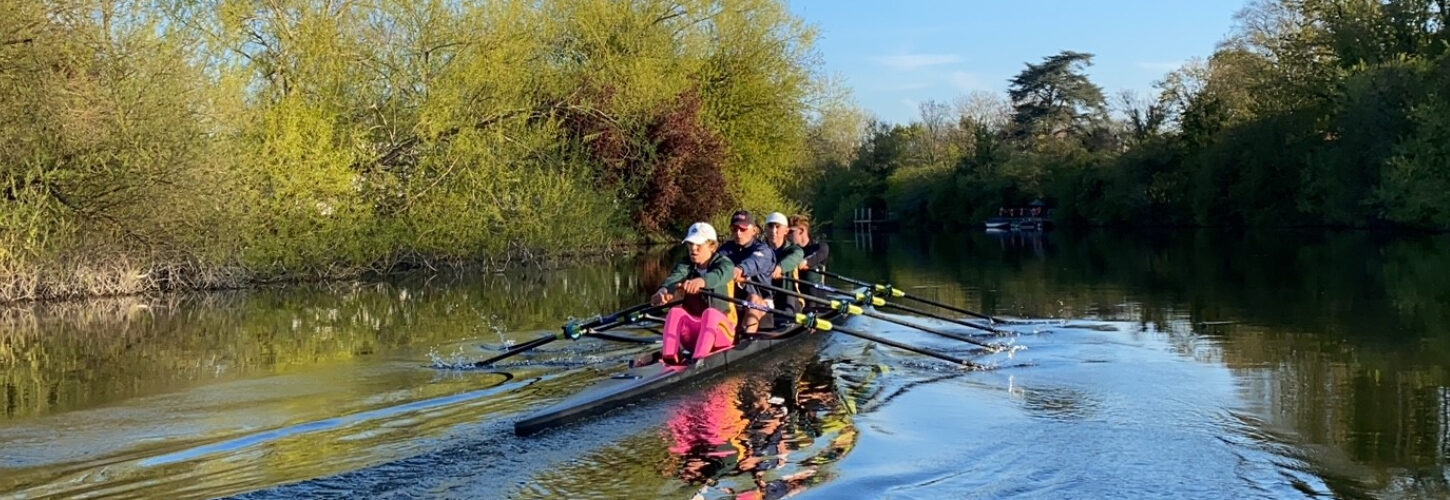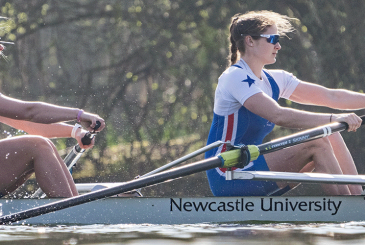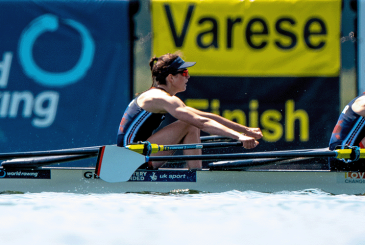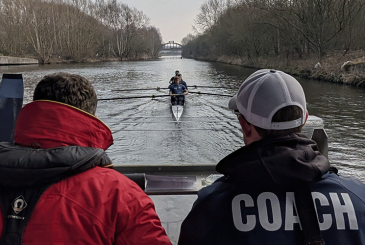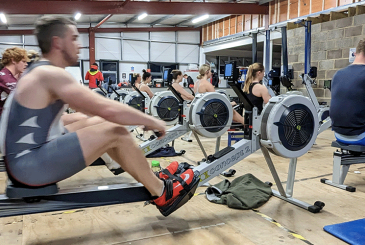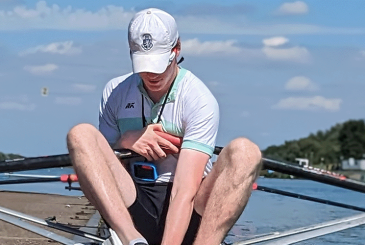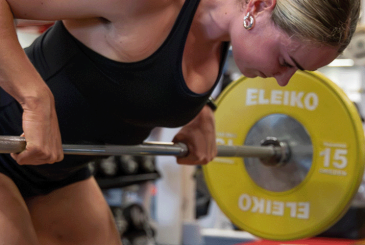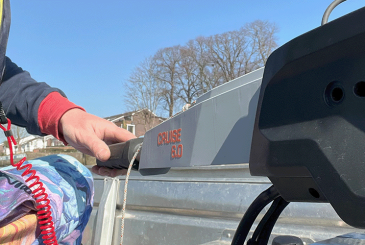Windsor Boys’ School and their director of rowing Mark Wilkinson are showing it is possible to have success at the highest level while offering meaningful opportunities for athletes at every level. Martin Gough finds out more
Around sport at the moment, there is a growing feeling that medals are not the best way to measure the success of a programme or its coaches. Arguably, what is more important is the effect that the sport has on an individual and the legacy it leaves.
However, over the last decade the Windsor Boys’ School and their director of rowing Mark Wilkinson have done a good job of ticking both boxes.
Having made the final of the Fawley Challenge Cup for quadruple sculls at Henley Royal Regatta in 2014 and ‘16, they won back-to-back titles in 2017 and ‘18, setting a new course record in the second year.
From those crews, Tom Smith and Bryn Ellery were in the Great Britain quads, coached by Wilkinson, that took silver medals at the World Rowing Junior Championships each year.
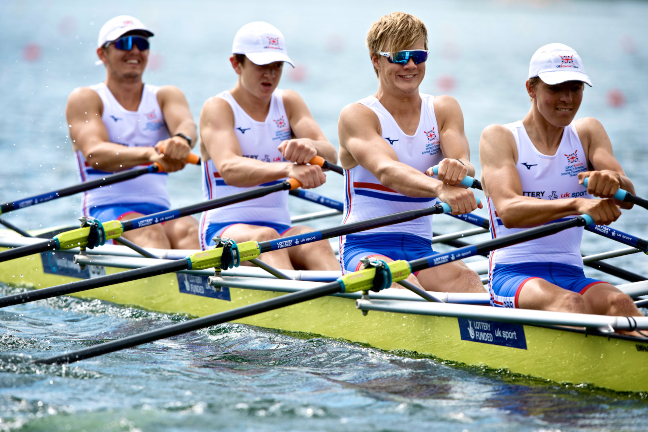
That is just the tip of the iceberg, though. Despite the effects of the COVID pandemic and lockdown, 120 boys were ready to take to the water again in March 2021, driven by an ethos of being the best they can be, whatever that level is.
And in September they can expect another 150 Year 9s to turn up, at least for one outing. That is about two-thirds of the school cohort.
“From 120 boys, not every boy is going to be a top-class performance rower,” says Wilkinson. “Many are just doing it because they really enjoy the sport, enjoy being part of the boat club and want to get as much out of it as they can, and they make really important contributions to the Boat Club every day.
“I’m a big believer that winning is important, but winning is more than a gold medal around their neck. It might be getting into the B crew when they were in the C crew last year for example.
“It might be being able to get out in a single rather than falling in, or the little technical things like getting their blades off the water that feels good when they’re doing it.”
“If you walked into the gym you would think it’s very well set up but we’ve earned every single piece of equipment”
Rowing teaches teamwork but at Windsor that stretches far further. The state school provides its boat club with no funding at all so everything, from the water bill, to coaching to equipment, comes from grants, monthly contributions and fundraising by the rowers, their parents and the alumni network.
Wilkinson reckons their budget is £30,000 short this year because of the pandemic. Half of that would have been raised by boys packing bags for Christmas shoppers at Marks & Spencer and Waitrose.
However he describes the need to earn the right to row, let alone to be successful, as a “big weapon” in their favour.
“The state-school environment is very hard at times. Sometimes you get to the end of the day and think, wow this is hard! But that feeling of earning every little bit of it is incredible,” says Wilkinson.
“If you walked into the gym, you would think it’s very well set up – and it is – but we’ve earned every single ergo and every single piece of equipment that is in there.
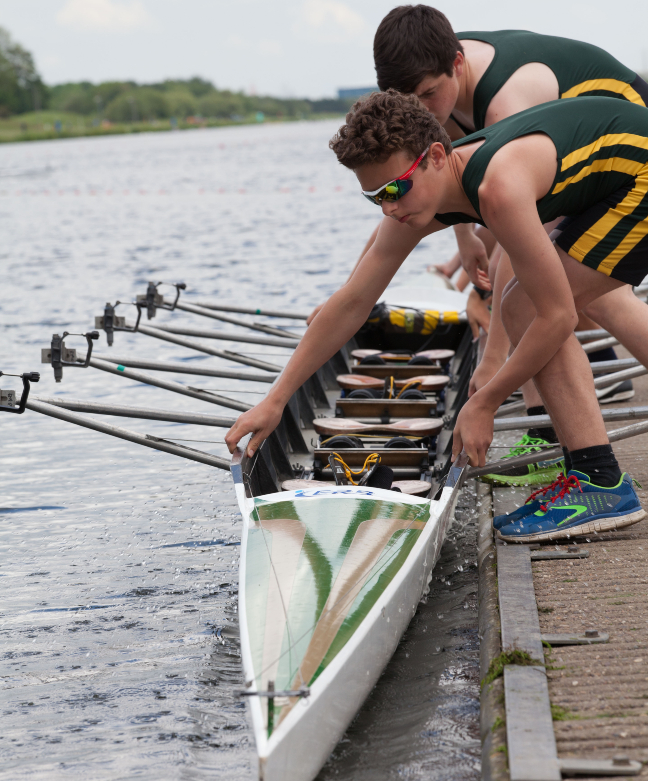
“I have no doubt that if I gave the boys a trailer plan then went and had a cup of tea, the boats would be loaded neatly and tidily. (I would check it, obviously!)
“I look at some schools and clubs that have a whole team of boatmen. When I work with GB, there are some boys who turn up and can barely de-rig their own boat.”
As a pupil, Wilkinson was part of the Windsor success in the mid-1990s – they placed athletes in composite crews that won at Henley in five successive years – but he returned as director of rowing in 2005 to find the boat club at a low ebb.
“I’ve got a massive list of all the things I tried to put in place, from culture and ethos to equipment, technical standards, understanding training,” he says.
“Mark is doing the work of 10 people – he is the director of rowing, coach of the first quad, J14 coach, S&C coach, nutritionist”
“No rower in the world wants to do every single training session because some of it is quite tough. How do we install a culture of ‘you may not want to do it, but never lose sight of the need to do it’? That’s just automatic now.
“I talk to the parents and the boys all the time about process to an outcome, finding reasons to do it, rather than an excuse not to.”
Undoubtedly, Wilkinson plays a vital part in the programme’s success, juggling the one-on-one attention a top athlete requires with the management of large numbers of parents and pupils elsewhere.
“Mark is doing the work of 10 people,” says Isaac Workman, a member of that quad in 2017 and ’18 who is now studying Pharmacology at University College London while rowing at UL.
“He is the director of rowing, coach of the first quad, J14 coach, S&C coach, nutritionist …
“He gives people skills to do things themselves, though. We might run our own gym session or have a water outing on our own.
“When the new Year 9s start, everyone is expected to show them the ropes, sitting in the quads. Without that it would be impossible to teach that many people.”
Windsor’s ethos borrows from football’s “boot room” method, where athletes grow up within a system then go on to teach others, both during their time in the team and afterwards.
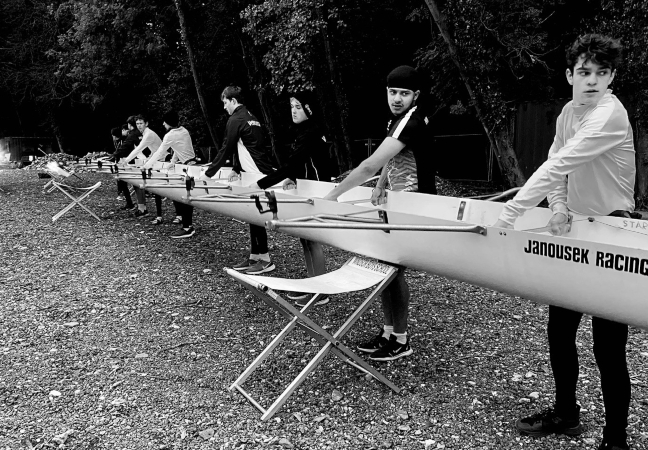
Wilkinson explains: “It’s a rolling effect, with the youngsters seeing the older guys and learning from them. When you’re 13 or 14 and you’re learning from an 18-year-old you kind of hero-worship them.”
Ellery is now coaching at Windsor while rowing at Leander Club and aiming to take the step up to success at under-23 level. When he tells J14s to lay their blades out neatly before an outing, they can see they are taking the first steps in the same path he followed.
“Attention to detail carries on into the boat,” Ellery explains. “If standards start to slip, they can slip a long way. It’s like cogs in a machine. You start to make sure that everyone can do the same thing.”
Ellery says, “I had my own version of me.” Andy Joel was in the Fawley quad of 2014 and went on to success as an under-23 while showing up regularly at his old school.
For Wilkinson, the success of athletes like Ellery is key to driving participation across the school, although having greater numbers means more work.
“The three key objectives for the club are opportunity for all, an opportunity to maximise ability and then delivering resources to enable the first two,” he says.
“When we won Henley in 2017, all the local pubs had it on TV. Parents went to the pub to watch it. It’s ridiculous for a local state school. In September, numbers just got bigger and bigger.
“Having a performance element, where boys are doing something really cool and exciting, really draws in the next generation. Then it’s up to me to keep things exciting, keep it inclusive, make sure every boy has their place.
“Our record is five regattas at a weekend. It’s a logistical nightmare, but we do it to give everyone an opportunity in the sport at the right level.”
In case he doesn’t work enough hours already, Wilkinson reels off a list of the other hats he wears within rowing. He was recently named as a lead coach for junior men’s sculling in the Great Britain team, having performed the role informally for the last two years.
“The mindset is to try and do something different, not just be a normal teenager who goes to school then goes home and plays on their Xbox”
He sits on the committees of the National Schools Regatta and the Scullery – the organisation behind the Junior Sculling Head and Junior Sculling Regatta – and the Junior Rowing Council, all with the aim of trying to develop the sport.
“We’re quite slow-moving as a sport but there is a swell towards making some good changes for the sake of the kids,” he says. “If you look at events compared to 20 years ago there’s not a lot of difference, but there’s a lot more kids trying to race.
“They’re not all going to go to world championships or nationals, so how do we develop the sport into a structure that is good for all levels?”
With a successful programme in place, what drives him to continue getting out of bed every morning?
“Coffee,” he jokes, before adding: “I enjoy seeing boys really determined to try and do something, whether they succeed or not.
“The mindset is to try and do something different, not just be a normal teenager who goes to school then goes home and plays on their Xbox.
“If I’ve got a group of boys with physical and mental potential, who want to do it, that’s exciting.”
Photos: Naomi Baker, Hamish Roots and Windsor Boys’ School


